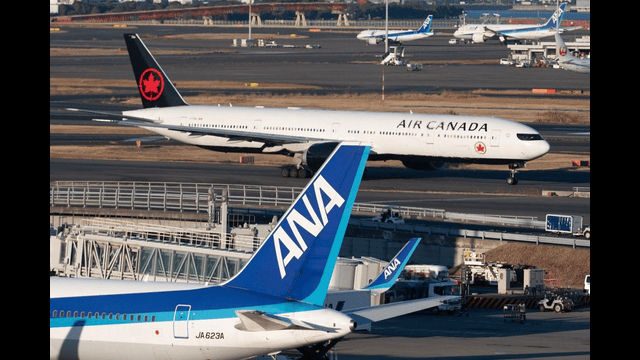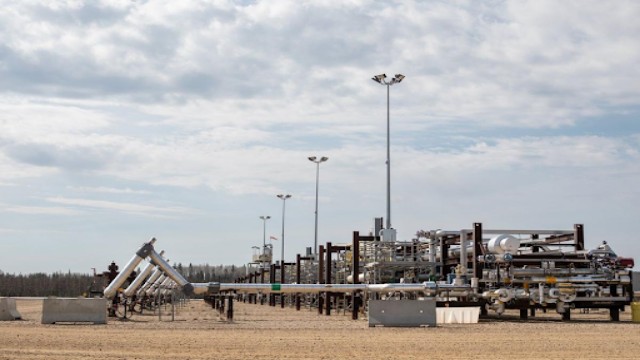
Locked out International Longshore and Warehouse Union Local 514 port workers walk to a rally as gantry cranes and cargo containers are seen in the distance in Vancouver on Friday. (Darryl Dyck/The Canadian Press)
Negotiations to resolve the labor dispute that has halted container shipping at British Columbia's ports since Monday, have broken down.
The B.C. Maritime Employers Association (BCMEA) shared an update on Saturday night, saying they and the International Longshore and Warehouse Union (ILWU) Local 514 had met separately with the Federal Mediation and Conciliation Service (FMCS) but made "no progress." Consequently, FMCS ended the mediation, and no additional meetings are scheduled.
The union, representing over 700 longshore supervisors at ports including Vancouver, Prince Rupert, and Nanaimo, accused the employers of prematurely halting talks less than an hour after they started on Saturday. The negotiations had been planned to last three days, aiming to resolve the standoff that has left the union without a contract since March of last year.
Federal Labour Minister Steven MacKinnon previously intervened in the dispute, urging both parties to resume negotiations, stressing that talks were progressing too slowly and lacked a sense of urgency. Business groups across Canada have echoed his concerns, urging swift action to prevent further economic harm. Over 100 organizations, including the Canadian Chamber of Commerce and Business Council of Canada, issued a letter calling for the government to take decisive steps to end the standoff, warning that the ongoing disruption jeopardizes Canadian businesses and jobs.
Meanwhile, ILWU Local 514 has filed a complaint with the Canada Industrial Relations Board, alleging that the employers tried to pressure union members by threatening to remove certain conditions from the previous contract. Union President Frank Morena condemned these actions, accusing the BCMEA of attempting to sway union members against their elected leadership, despite strong support for potential job action, with 96 percent of members backing it if necessary.
The BCMEA dismissed the union’s claims, describing the complaint as "meritless." They reiterated that their final offer, which includes a 19.2 percent wage increase over four years, remains on the table and emphasized that the proposal doesn’t require any concessions from the union. The union, however, argues that the offer fails to address critical staffing issues, particularly as automation in cargo handling could reduce the need for workers at port terminals.
This dispute is part of a larger pattern of labor unrest at the Port of Vancouver, Canada’s busiest port, which has faced previous strikes affecting the rail and grain sectors. Just last year, a 13-day strike by a different group of port workers severely disrupted shipping and trade, impacting the economy.















